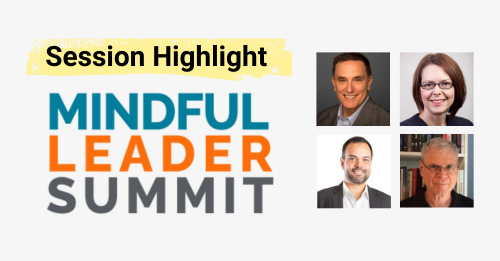Mindfulness Within — or Against — Capitalism?
The debate exposed a sharp divide in views on whether mindfulness is complicit in maintaining harmful capitalist systems or a potential tool for reform. Rich Fernandez pointed to companies like Salesforce and Starbucks as examples where mindfulness-informed values like empathy, presence, and equity directly influenced business practices, even when profit wasn’t the top priority.
However, David Forbes pushed back strongly, asserting that capitalism's competitive and extractive nature inevitably places profit over people. He questioned whether mindfulness can ever truly challenge systemic injustice if it's being used to soothe individuals while leaving the harmful structures intact.
Is Mindfulness Religious, and Does It Belong in Public Institutions?
Candy Gunther Brown raised the issue of mindfulness’s Buddhist roots, arguing that when such practices are brought into public settings like schools or workplaces, transparency is critical. She stressed the importance of opt-in participation rather than opt-out models, citing concerns about coercion due to power dynamics between teachers/employers and students/employees.
Barnaby Spring responded by sharing how the New York City Department of Education has approached mindfulness by first introducing it to educators themselves—encouraging individual exploration without imposing it on students. Both agreed on the importance of respecting individual belief systems while recognizing mindfulness’s transformative potential.
Social Mindfulness: Building Bridges Through Awareness
Beyond individual stress relief, multiple speakers highlighted mindfulness’s potential to foster empathy and social transformation. Spring referred to “social mindfulness” as a democratic bridge from personal struggle to collective responsibility, suggesting that mindfulness can serve as a civic practice that nurtures connection, critical thinking, and shared action.
Fernandez added real-world examples, including a moving story from the Bombay Stock Exchange, where a brief mindfulness exercise dissolved long-held cultural enmity between a Hindu and a Muslim participant. These moments, he suggested, reveal how mindfulness can build compassion that crosses social and political divides.
Final Thoughts
The session underscored that mindfulness is not a neutral or universally agreed-upon practice. It sits at the crossroads of economic, spiritual, and civic conversations—and its future in public life depends on how we choose to define, apply, and question it. Whether a vehicle for personal peace or systemic transformation, the debate highlighted that mindfulness must be grounded in clarity, inclusivity, and social responsibility.
What are your thoughts? And which speaker resonated with your view most?
This article is part of our Best of Summit series where we spotlight the most compelling sessions from our summit.



0 comments
Leave a comment
Please log in or register to post a comment